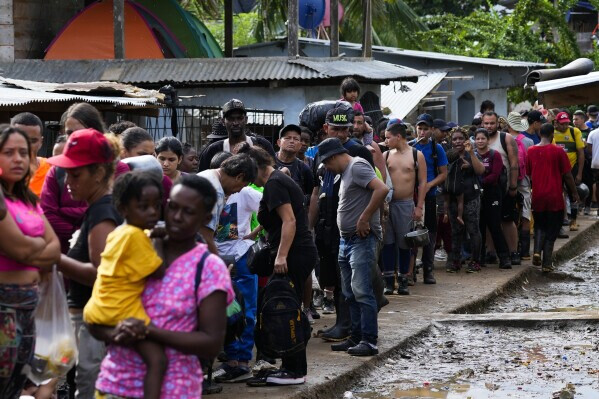
Central America — In a coordinated effort to address the growing challenges of migrant returns, Costa Rica and Panama have announced the implementation of a joint bus route initiative. This strategy aims to provide a "humanitarian and regulated" approach to managing the flow of migrants returning to their countries, particularly in light of evolving policies in the United States.
The announcement was made on Monday by the Security Ministers of Costa Rica and Panama during the inauguration of a new customs facility in Peñas Blancas, Costa Rica. Costa Rican Security Minister, Mario Zamora, detailed the new bus route, which commences at the Costa Rican border, transporting migrants to Panama, where they will then transfer to onward transportation towards the Colombian border.
"The official establishment of this bus system from Peñas Blancas and Tablillas to our southern CATEM (Temporary Care Center for Migrants) marks a significant step in ensuring the safe return of individuals to their home countries," stated Minister Zamora. "From our CATEM, migrants will board Panamanian buses, facilitating their journey to the Panama-Colombia border."
The initiative is a direct response to the increasing need for coordinated migrant management strategies in the region, influenced by shifting US immigration policies. By creating a regulated transportation system, Costa Rica and Panama aim to provide a safer and more organized return process for migrants.
Operational Details and Humanitarian Focus
The collaborative effort involves immigration authorities from both nations. Migrants are collected at Peñas Blancas, the border point between Nicaragua and Costa Rica, and transported to the CATEM on the Panamanian border. From there, they are moved to the Lajas Blancas migrant care center in the Darién Gap, a challenging and often dangerous stretch of terrain.
While the governments of Costa Rica and Panama have yet to release specific details regarding bus route frequencies and migrant capacity, the focus remains on providing a humanitarian solution. The initiative seeks to mitigate the risks associated with unregulated migrant movement and ensure that individuals are returned to their countries of origin in a secure and orderly manner.
This joint initiative underscores the importance of regional cooperation in addressing complex migration issues. As policies in the United States continue to evolve, Costa Rica and Panama are taking proactive steps to manage migrant flows and uphold humanitarian principles.
[Copyright (c) Global Economic Times. All Rights Reserved.]






























